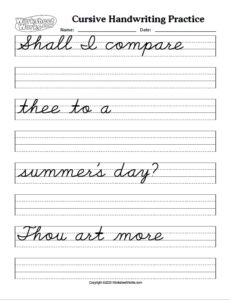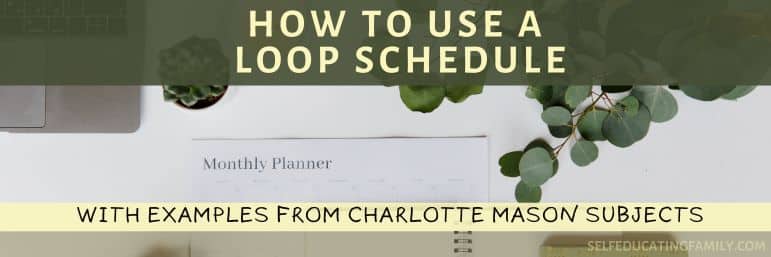What’s inside: 10 Great Poems for kids to memorize and use for copywork. These are some of the greatest English Language poems that will inspire your poetry studies.
This post may contain affiliate links. If you find my content valuable and make a purchase through one of my links, I will earn a commission at no cost to you, which helps me keep this blog going so I can help you even more! I recommend products I trust and/or use myself, and all opinions I express are my own. Read the full disclaimer here.
Great or Greatest Poems Ever?
I read an article recently at The Society of Classical Poets written by Evan Mantyk. He made a list of the 10 Best English Poems Ever Written that were 50 lines or less.
This idea appealed to me because I still am not good at reading really long poems. (Thanks to Idylls of the King!)
And so today, I’m asking what do you think of his list? I’m liking it so far. I think these are great poems for kids to memorize! The commentary he wrote on each of these poems are worth a read.
Here’s his List
- “Sonnet 18” by William Shakespeare (1564-1616)
- “Holy Sonnet 10: Death, Be Not Proud” by John Donne (1572-1631)
- “Daffodils” by William Wordsworth (1770-1850)
- “A Psalm of Life” by Henry Wadsworth Longfellow (1807-1882)
- “On His Blindness” by John Milton (1608-1674)
- “The Tiger” by William Blake (1757-1827)
- “Ode on a Grecian Urn” by John Keats (1795-1821)
- “Ozymandias” by Percy Bysshe Shelley (1792-1822)
- “The New Colossus” by Emma Lazarus (1849-1887)
- “The Road Not Taken” by Robert Frost (1874-1963)
Do you know them?
Surprisingly, I knew 7 or 8 of these poems, so right off the bat, I feel I have to agree with his list. After all, if I had heard of them – well, they’ve got to be good.
I’ve even used “Daffodils” in the collection of seasonal poetry in my Poetry Hater’s Guide to Loving Poetry! It’s in the Spring section.
I’ve said before that I think “Road Not Taken” is a favorite of mine ever since we sang the choral arrangement of it in high school. In my nature walk quotes post, I share a beautiful version of that song that I found. Singing a poem is a great way to memorize it by the way.
And you know how I feel about Shakespeare! I’ve used quotes from Sonnet 18 in one of my Shakespeare Bookmarks collection.
What to do with these poems?
Well, first – let me ask you some questions…
Do you want to keep up the kid’s penmanship in summer?
If so, you should select a poem from this list. Depending on the level of your child, print appropriate sized paper and make some pages for your child.
Keep it light and strictly 5 minutes max. Even if the poem is 48 lines, just do a line or two in each copywork session.
The point of daily copywork is to work incrementally to keep up the skills learned. Always have the child evaluate his own work and work slowly enough to keep the handwriting forms correct. But in summertime, or off seasons, be sure to make room for non-copywork days!
Do you want to use dictation with your copywork?
If you are using dictation, that can be a lot of fun with poems like these. To use dictation, the child should be very familiar with the source. So copywork type of familiarity or recitation-level familiarity. Memorization is not necessary, but it can help.
When you are doing dictation, you’ve already reviewed everything about the structure, grammar, spelling, and punctuation. But usually, these things happen in a natural way. Simple questions about the passage usually should cover it. You try to have the child point out and observe the words or spelling, depending on what your child needs to pay attention to.
When we did dictation, I would say the punctuation aloud. As in, “a summer’s day question mark next line.” And my guys were not good spellers, so that was challenging.
Dictation should be done when the child is ready to succeed at it. So make sure the passage is easy enough for success. You can also try dictating just a line or two.
Is your child using a commonplace notebook yet?
These are excellent sources for a commonplace transcription.
In general, commonplace notebooks are used in later years. Once the child is fluent in handwriting.
The use of the commonplace should be by choice not force. I made this mistake at first – I would say, “Put this in your commonplace notebook.”
After I figured out that wasn’t quite the way to do it, I would say, “Find a quote you like and put it in your commonplace notebook.”
Eventually though, the child should be putting quotes in regularly without prompting.
Can you use any of these for memorization or recitation?
It’s always fun to have a recitation night at dinner. A semester or a summer is a good time to work on one poem to memorize. You can do it as a family simply by reading the poem every few days aloud or together aloud.
And these are definitely great poems for your kids to memorize!
Which brings up another fun way to add one of these poems to your life.
Read it in the morning
Simply reading the poem aloud at the breakfast table for a semester – even 3 days a week. I was always shocked at how easily kids can memorize poems just from a few readings.
Easy way to make copywork
If you want a quick way to make copywork, go to Worksheet Works free handwriting page generator.
I made one in cursive for Sonnet 18. If you go to the Worksheet Works page, here is a step-by-step on how to make this:
- Click on Cursive Handwriting Practice.
- Adjust your settings. I selected default ½” line height and the defaults for everything else EXCEPT Line Spacing – change that to “Double for Copying”
- Copy the text of your poem into the “Text” box.
- Click “Create Worksheet”.
Sign up for the newsletter to get access to this sample Sonnet 18 copywork. It’s available in the free library when you sign up.

10 Great Poems
I do agree with this list of 10 Great Poems of “short” length! I think I will select a poem that I don’t know and one that I am familiar with to work on memorizing this summer.
I’ll print them out, read them, maybe put them in my commonplace notebook, and then see if I can recite them this fall.
Do you think these are great poems for you and your kid to memorize? What challenge will you do?









